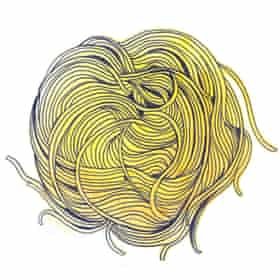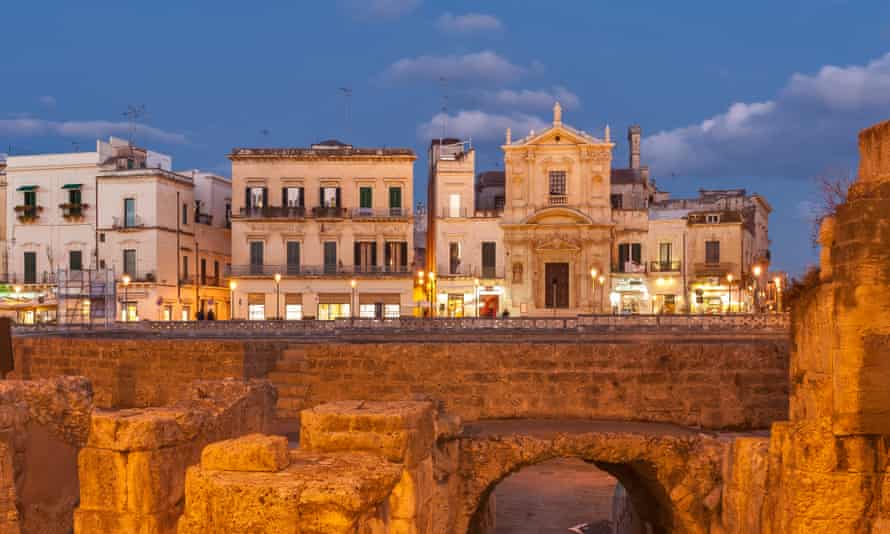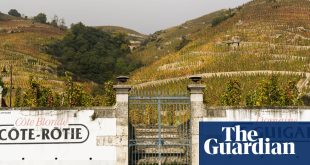Food
Lecce is renowned for its cucina povera – it literally means “poor cuisine”, but refers to the tasty home cooking of rural families who make the most of seasonal, local produce. We are fortunate to have wonderful fresh vegetables – so dining out can be a vegetarian’s paradise – along with seafood direct from the Ionian Sea. For an honest trattoria experience, you can’t beat Alle due Corti, where Signora Rosalba cooks unforgettable dishes such as ciceri e tria’, crunchy fried tagliatelle with chickpeas, polpette di melanzane, fried aubergine balls with mint and basil, a hearty fava bean soup with chicory, and the local favourite, orecchiette con cime di rapa – pasta “ears” with turnip greens and anchovies.

For a contemporary take on traditional recipes, try Arte dei Sapori – imagine a whole sea bass cooked in clay – while La Scarpetta’s romantic garden is the perfect spot to try spaghetti topped with creamy sea urchin. Stock up on local specialities at Porta Rudiae’s covered market: it’s great for caciocavallo cheese, spicy salsiccia and taralli biscuits.
Inspiration
Everyone talks about Must, our new avant garde art centre, but I find the old-fashioned Museo Sigismondo Castromediano inspiring. It’s dedicated to the archaeology of Lecce, which dates back to the Magna Graecia (Greek colonial) period, from the eighth to the fifth century BC. It is always quiet and peaceful, rarely visited by tourists.
I love Caffè Alvino, where I often meet other winemakers. It is opposite the old Bar della Borsa, the “wine exchange” bar (now sadly replaced by a McDonald’s), so called because each week winemakers met there to decide the price of the bulk wine that Puglia exported all over Europe. My papà used to take me. These days the region makes quality bottled wine rather than bulk, so discussions are now more about climate change and organic vineyards.
Neighbourhood
The historic centre isn’t really divided into neighbourhoods, and to really experience the city this is where you must focus. Explore the small area encircled by our city gates on foot, beginning at the 500-year-old Porta Napoli. You walk through time, from the ruined Roman amphitheatre, along lanes lined with baroque palaces and mansions, and emerge opposite the Basilica di Santa Croce, whose facade took a century to sculpt. Then there’s the breathtaking Piazza Duomo, dominated by its 17th-century cathedral, or the seemingly quiet Piazza Sant’Oronzo, honouring Lecce’s patron saint. This is the real city centre. It comes alive from 24-26 August, when we celebrate Sant’Oronzo with a festival of lights, music and street food that no local ever misses.

Green space
In between its tight mass of baroque buildings, Lecce has three key central green spaces: the lush grounds and tropical yuccas, cacti and palm trees of the Villa Reale; the sprawling Parco Belloluogo, recently renovated and perfect for outdoor sports; and the formal Giuseppe Garibaldi gardens, with their ancient sculptures and fountains. Don’t miss Pasticceria Natale, just outside the Garibaldi gardens – it’s the perfect place to try a pasticciotto leccese, a little pastry pie filled with ricotta or egg custard, with caffè alla salentina, an iced espresso with almond milk. For a great bike ride outside the city, head east towards San Cataldo on the Adriatic. The route takes you past splendid 18th-century villas that were once summer residences for Lecce’s nobility.
Nightlife
Lecce looks peaceful during the day but comes alive at night, with tiny squares and courtyards packed with restaurant and bar terraces. Between Piazzetta Santa Chiara and Piazzetta Sigismondo Castromediano, there is street food, craft beer and cocktails, while 250 local wines are on the list at Mamma Elvira: from bubbly and rosé to more complex negroamaro and primitivo reds.
Stay
Palazzo Rollo (doubles from €110 B&B) is in a baroque mansion with a roof garden, right by the cathedral.
Massimiliano Apollonio is a fifth-generation winemaker at 150-year-old Apollonio winery. His family give an award in Lecce each year to artists who promote Puglian culture
 Top Naija News: Nigerian News, Breaking News Nigeria and World News Top Naija News is a daily news publication in Nigeria, delivering the latest breaking news in Nigeria and around the world.
Top Naija News: Nigerian News, Breaking News Nigeria and World News Top Naija News is a daily news publication in Nigeria, delivering the latest breaking news in Nigeria and around the world.



